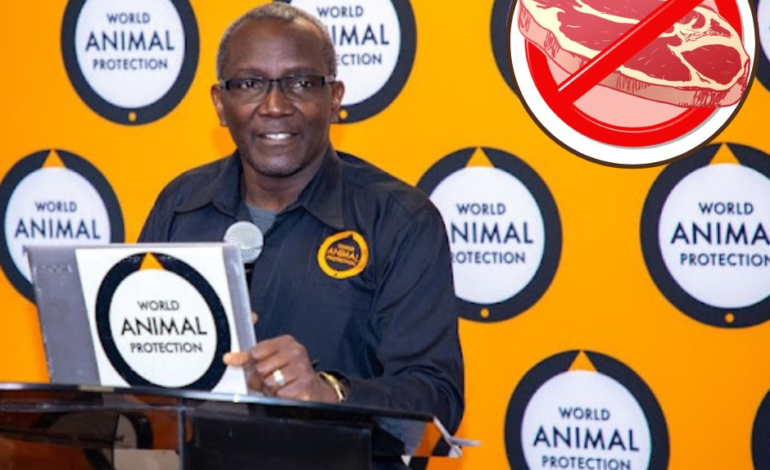
Avellon Williams
KENYA- Experts in animal protection and nutrition have urged Kenyans to reduce intensive meat consumption by seeking out alternative protein sources.
According to Victor Yamo, the rapid growth of the human population, coupled with increased wealth, has resulted in an increase in consumer demand for animal protein products.
Yamo works for World Animal Protection as the farming campaigns manager.
According to him, livestock production has been intensified in order to meet demand.
“However, intensive livestock production is associated with significant animal abuse, water and environmental pollution, deforestation, biodiversity loss and increased greenhouse gas emissions,” Yamo said.
“This makes it an unsustainable method of food production.”
On Monday, he spoke with reporters after attending the 2nd Protein Summit. The summit was organised by the World Animal Protection.
To restore the climate, Yamo called on the government to promote sustainable and humane animal production.
Increasing awareness of alternative protein sources is necessary to meet nutrition requirements, he said.
“This is while directing resources towards awareness creation to achieve attitude and behaviour change from intensive meat consumption to alternative protein sources,” Yamo said.
According to nutritionist Naomi Neema, millet contains both starch and protein.
“Millet is a starch but it is both a source of carbohydrates and protein alongside other nutrients,” she said.
“It can be used to meet the nutritional needs for both carbohydrates and proteins. Per serving of millet, we get three grams of proteins and 15 grams of carbohydrates.”
According to Neema, Kenyans are turning to traditional foods such as sorghum and millet because of their nutritional value and affordability.
“Kenyans are shifting to alternative healthier sources of food. For example, most people now prefer to take a cup of porridge rather than tea for breakfast,” she said.
“I think this could be due to various reasons, including the fact that milk is becoming expensive for many households to buy with the high cost of living. Another reason could be for the nutritional value in porridge compared to a cup of tea.”
In recognition of millets’ nutritional value and drought resistance, the United Nations has declared 2023 as the International Year of Millets.
Global consumption of meat proteins is projected to grow by 14% by 2030, according to the UN Food and Agriculture Organization 2022 Agricultural Outlook.
Increasing incomes and populations are major factors behind this.
It is estimated that the availability of protein from beef, pork, poultry, and sheep meat will increase by 5.9 percent, 13.1%, 17.8%, and 15.7% respectively by 2030.
“In high-income countries, however, changes in consumer preferences, ageing and slower-growing populations will lead to a levelling off in per capita meat consumption, and a move towards the consumption of higher-valued meat cuts,” FAO says.
Approximately 54 percent of the total greenhouse gas emissions resulting from agriculture between 2018 and 2020 come from meat production.
By 2030, FAO estimates the meat sector will emit five percent more emissions than it produces, a significantly smaller increase than the increase in meat production.
Several factors will contribute to this, including increased poultry production and higher meat yields from a given animal stock.
“The adoption of new technologies to reduce methane emissions, for example, feed supplements that are not widely available today, could further reduce future per unit emissions,” the FAO outlook said.
According to experts, 65 percent of Africa’s greenhouse gas emissions come from agriculture, forestry, and other land-use changes.
Affirming and regulating greenhouse gas emissions from animal agriculture is Yamo’s call to African governments.
“Governments should also hold agricultural companies with high emissions accountable for their carbon footprint and low regard for animal welfare,” he said.
RELATED:




